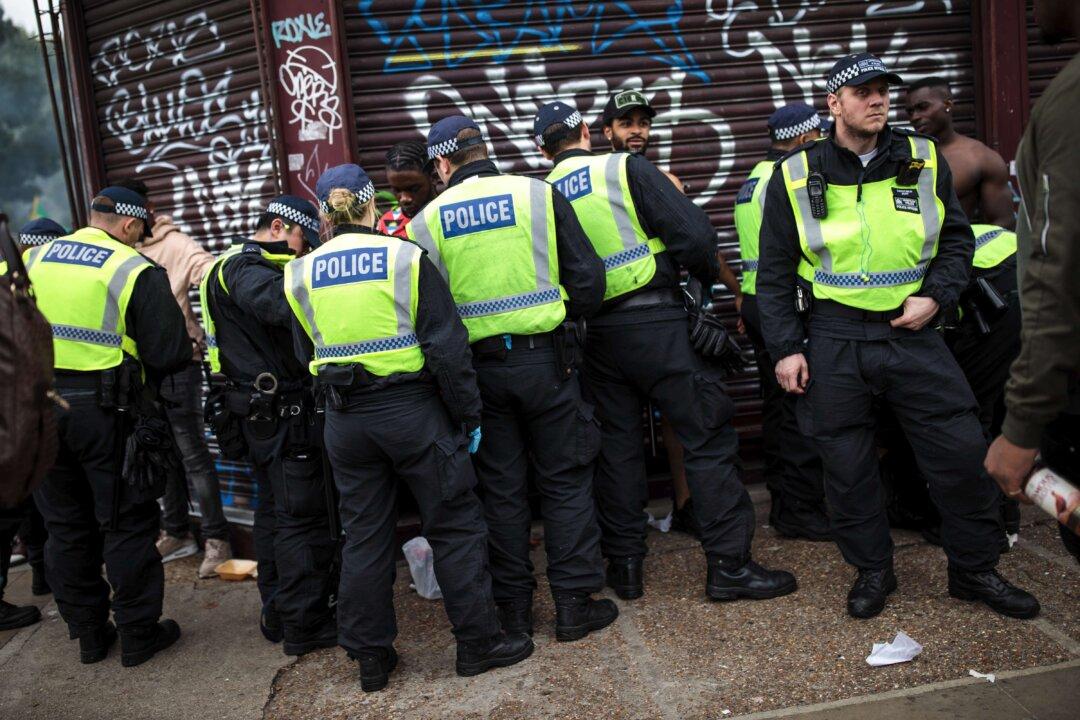The police should not tiptoe around using stop and search powers, but increase their use to curb knife crime and ensure public safety, the policing minister has said.
Chris Philp has urged officers to take a “robust approach” and take “knives off our streets.”
According to Home Office figures, since 2019, 100,000 weapons have been removed from UK streets, with 40,000 of those specifically seized through stop and search. The measures led to over 220,000 arrests.
The stop and search powers allow police to allay or confirm their suspicions without making an arrest. Officers must have “reasonable grounds” to conduct the search, or—when authorised by a senior officer—a search without reasonable grounds can be conducted.
Section 60
The use of the powers was reduced and reformed in 2014 under then Home Secretary Theresa May, over concerns it was “misapplied,” disproportionately affecting black people.Under section 60, the police have the right to search people without reasonable grounds, when a senior officer believes there is a possibility of serious violence or weapons involvement.
An investigation into the use of section 60 found that police forces couldn’t explain why certain groups of people had been disproportionately targeted and didn’t “take this matter seriously enough.”
However, Mr. Philp suggested that officers shouldn’t be afraid to use stop and search in an “aim to appease.”
“The police must use the powers available to them without fear or favour. I want to see them take a robust approach and this starts with increasing the use of stop and search. In today’s climate police stop and search is the best foot forward, we know this,” he said.
Earlier this month, the Met Commissioner Sir Mark Rowley told LBC Radio that policing authorities plan to increase the use of stop and search in London.
“We’ll make some announcements on that in the next couple of months,” Sir Mark added.
Mr. Philp said that he would like to see this commitment on a national level, adding:
“We should leave people in no doubt that carrying a knife is a criminal offence and could lead to up to four years in prison.”
Serious Violence Reduction Orders
Under Home Office measures, four areas in the UK—Thames Valley, West Midlands, Merseyside and Sussex—have been trialling what is known as Serious Violence Reduction Orders (SVRO).These orders give officers powers to automatically search those previously convicted of weapons offences, to deter them from carrying knives again.
According to the Home Office, in the year ending December 2022, 30 percent of offenders convicted or cautioned for a knife or offensive weapons offence, already had at least one previous conviction or caution.
The Criminal Justice Alliance (CJA) has been critical of the SVROs implementation, suggesting the measure will be disproportionately applied to black, Asian and minority ethnic groups.
Knife crime has been described as an epidemic by the Labour Party, which much like the Conservatives, has vowed to reduce levels of crime and “turn the trend around.”
According to official data, knife-enabled crime recorded by the police in the year ending December 2023 increased by 7 percent, compared with the year before.
“The need for a zero-tolerance approach to knife crime has never been more acute,” said Mr. Philip.







